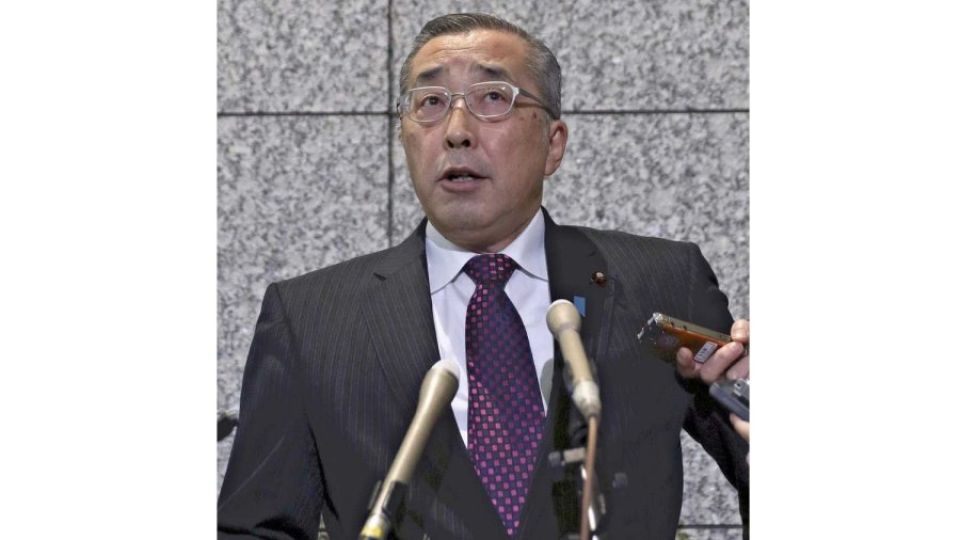December 18, 2023
TOKYO – As allegations of kickbacks involving members of the ruling Liberal Democratic Party’s Abe faction continue to swell, a former internal affairs minister has admitted that his secretary notified him that his office had exceeded party ticket sales quotas and received the excess funds.
Other lawmakers belonging to the faction also have admitted to receiving similar monies, but many others remain silent on the issue, prompting one expert to say that those in question have an obligation to explain.
‘Part and parcel’ of politics
“My secretary received kickbacks of ¥600,000 in cash from the faction,” Junji Suzuki, a former internal affairs and communications minister and a member of the Abe faction, told reporters on Friday in the Kasumigaseki district of Tokyo. “Each time there was a kickback, it was reported to me and [the money was] stored in my office.”
The 65-year-old House of Representatives member, elected from Aichi Constituency No. 7, said he had not stated the kickback amounts in his political funds reports but intended to correct the records in the future.
As internal affairs minister, Suzuki had jurisdiction over the Political Funds Control Law. He had consistently denied the kickback allegations since they first emerged in late November, telling reporters after Cabinet meetings that he had not received kickbacks from his faction.
However, after submitting his resignation on Thursday, he suddenly changed tack, saying, “I talked with my secretary and discovered that there had been some small kickbacks.”
According to Suzuki, the faction set sales quotas for party tickets — each of which costs ¥20,000 — asking him to achieve annual sales of ¥2.1 million for 2018, 2019 and 2023, and ¥1.1 million during the years of the COVID-19 pandemic from 2020 to 2022. When Suzuki failed to achieve some of his sales targets, he covered the shortfall out of his own pocket. Nevertheless, he also received kickbacks of ¥300,000 in 2020 and ¥220,000 in 2021 from the faction, representing the sales quota excess.
“I made inaccurate comments during press conferences,” Suzuki said. “I assumed the money was distributed to help finance my political activities, and I didn’t recognize that I’d received off-the-books cash; that’s why I said I hadn’t taken kickbacks. It may sound strange, but in my experience, [kickback]s are part and parcel of the political world.”
Instructions from faction
As the kickback scandal gathers pace, former State Minister of Defense and lower house member Hiroyuki Miyazawa, 48 — elected from the Tokai proportional representation constituency, has admitted that the faction systematically created hidden funds, the first Abe faction member to do so. Speaking at the Diet building on Wednesday, he told reporters that he had received kickbacks from the faction totaling over ¥1 million during the three years from 2020 to 2022.
“My faction once told me that I didn’t need to include the amounts in my political funds reports,” Miyazawa said. “This [practice] went on for many years so I assumed it was not violating the law.”
But when asked who had issued the instructions, Miyazawa said, “I’ve no idea.”
Manabu Horii, 51, a former Cabinet Office state minister and a lower house member elected from the Hokkaido proportional representation constituency, told The Yomiuri Shimbun on Thursday that he had sold between 270 to 300 party tickets a year. “I think there might have been kickbacks,” he said.
“A secretary who was in charge of ticket sales and other operations quit working at my office, so many things are unclear,” Horii said. “I apologize for causing significant public distrust in politics.”
“Suzuki publicly said that there had been no kickbacks, without conducting a close investigation within his office,” said Kazuhisa Kawakami, professor of political psychology at Reitaku University. “This is unfaithful to voters. I think other lawmakers started addressing the issue to try to protect themselves but also because the faction has failed to provide sufficient explanations for the allegations or take necessary actions. The lawmakers should fulfill their obligations to explain the issue, including how the kickbacks have been used.”

